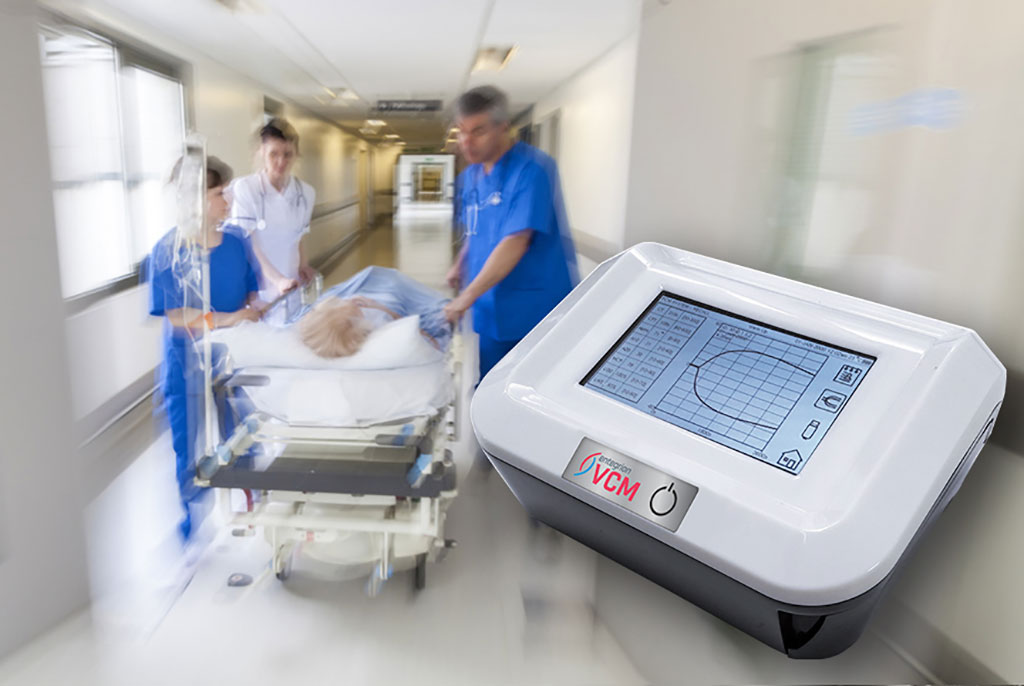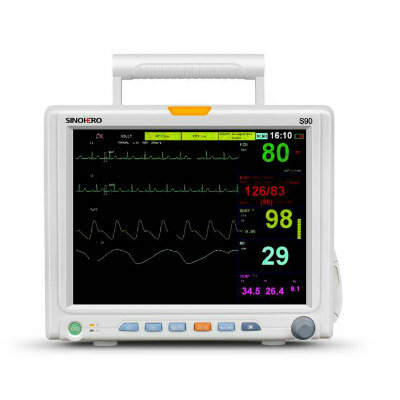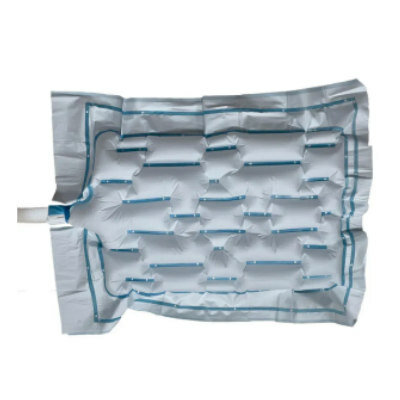Next Gen Viscoelastic Coagulation Monitor Enables Rapid Hemostasis Assessment at Patient Side
|
By HospiMedica International staff writers Posted on 31 May 2023 |

The use of viscoelastic coagulation testing is on the rise for various applications such as trauma, surgery, obstetrics, major disease management, and more. It provides crucial information not obtained from conventional coagulation tests. Now, a next-generation viscoelastic testing device has been introduced, enabling quick, real-time assessment of hemostasis at the point of care.
Entegrion, Inc.’s (Durham, NC, USA) viscoelastic coagulation monitor, VCM, is designed to serve as a truly efficient point-of-care solution. It represents a significant advancement over existing viscoelastic testing systems, featuring accessibility, user-friendly operation, and impressive portability. The VCM system requires a small amount of fresh, non-citrated whole blood, which is input directly into the device at the patient's side. The fully automated test eliminates the need for chemical accelerants and sample manipulation, thus saving crucial time and preserving the sample's original properties.
The VCM system includes an analyzer, disposable cartridges, and a heater plate used to heat the cartridges to 37°C during the pre-test phase. After drawing blood, a small unmetered sample is added to the cartridge via an extra cup. The precise amount of blood required automatically flows into the cartridge, filling the space between two glass surfaces. The extra cup is then removed, the lateral port is closed, and the cartridge is placed in the analyzer to commence the test. The analyzer maintains a constant internal temperature and humidity throughout the process.
With its compact size, the VCM has the potential for a wide range of applications in various clinical settings, including pre-hospital emergency medicine. The VCM system has secured regulatory approval in Europe and will be available in Europe and other regions that accept CE Marked products. However, the system has not yet been cleared for clinical use in humans in the United States.
Related Links:
Entegrion, Inc.
Latest Point of Care News
Channels
Critical Care
view channel
Ingestible Smart Capsule for Chemical Sensing in the Gut Moves Closer to Market
Intestinal gases are associated with several health conditions, including colon cancer, irritable bowel syndrome, and inflammatory bowel disease, and they have the potential to serve as crucial biomarkers... Read moreNovel Cannula Delivery System Enables Targeted Delivery of Imaging Agents and Drugs
Multiphoton microscopy has become an invaluable tool in neuroscience, allowing researchers to observe brain activity in real time with high-resolution imaging. A crucial aspect of many multiphoton microscopy... Read more
Novel Intrabronchial Method Delivers Cell Therapies in Critically Ill Patients on External Lung Support
Until now, administering cell therapies to patients on extracorporeal membrane oxygenation (ECMO)—a life-support system typically used for severe lung failure—has been nearly impossible.... Read moreSurgical Techniques
view channel
Pioneering Sutureless Coronary Bypass Technology to Eliminate Open-Chest Procedures
In patients with coronary artery disease, certain blood vessels may be narrowed or blocked, requiring a stent or a bypass (also known as diversion) to restore blood flow to the heart. Bypass surgeries... Read more
Intravascular Imaging for Guiding Stent Implantation Ensures Safer Stenting Procedures
Patients diagnosed with coronary artery disease, which is caused by plaque accumulation within the arteries leading to chest pain, shortness of breath, and potential heart attacks, frequently undergo percutaneous... Read more
World's First AI Surgical Guidance Platform Allows Surgeons to Measure Success in Real-Time
Surgeons have always faced challenges in measuring their progress toward surgical goals during procedures. Traditionally, obtaining measurements required stepping out of the sterile environment to perform... Read morePatient Care
view channel
Portable Biosensor Platform to Reduce Hospital-Acquired Infections
Approximately 4 million patients in the European Union acquire healthcare-associated infections (HAIs) or nosocomial infections each year, with around 37,000 deaths directly resulting from these infections,... Read moreFirst-Of-Its-Kind Portable Germicidal Light Technology Disinfects High-Touch Clinical Surfaces in Seconds
Reducing healthcare-acquired infections (HAIs) remains a pressing issue within global healthcare systems. In the United States alone, 1.7 million patients contract HAIs annually, leading to approximately... Read more
Surgical Capacity Optimization Solution Helps Hospitals Boost OR Utilization
An innovative solution has the capability to transform surgical capacity utilization by targeting the root cause of surgical block time inefficiencies. Fujitsu Limited’s (Tokyo, Japan) Surgical Capacity... Read more
Game-Changing Innovation in Surgical Instrument Sterilization Significantly Improves OR Throughput
A groundbreaking innovation enables hospitals to significantly improve instrument processing time and throughput in operating rooms (ORs) and sterile processing departments. Turbett Surgical, Inc.... Read moreHealth IT
view channel
Printable Molecule-Selective Nanoparticles Enable Mass Production of Wearable Biosensors
The future of medicine is likely to focus on the personalization of healthcare—understanding exactly what an individual requires and delivering the appropriate combination of nutrients, metabolites, and... Read more
Smartwatches Could Detect Congestive Heart Failure
Diagnosing congestive heart failure (CHF) typically requires expensive and time-consuming imaging techniques like echocardiography, also known as cardiac ultrasound. Previously, detecting CHF by analyzing... Read moreBusiness
view channel
Expanded Collaboration to Transform OR Technology Through AI and Automation
The expansion of an existing collaboration between three leading companies aims to develop artificial intelligence (AI)-driven solutions for smart operating rooms with sophisticated monitoring and automation.... Read more

















